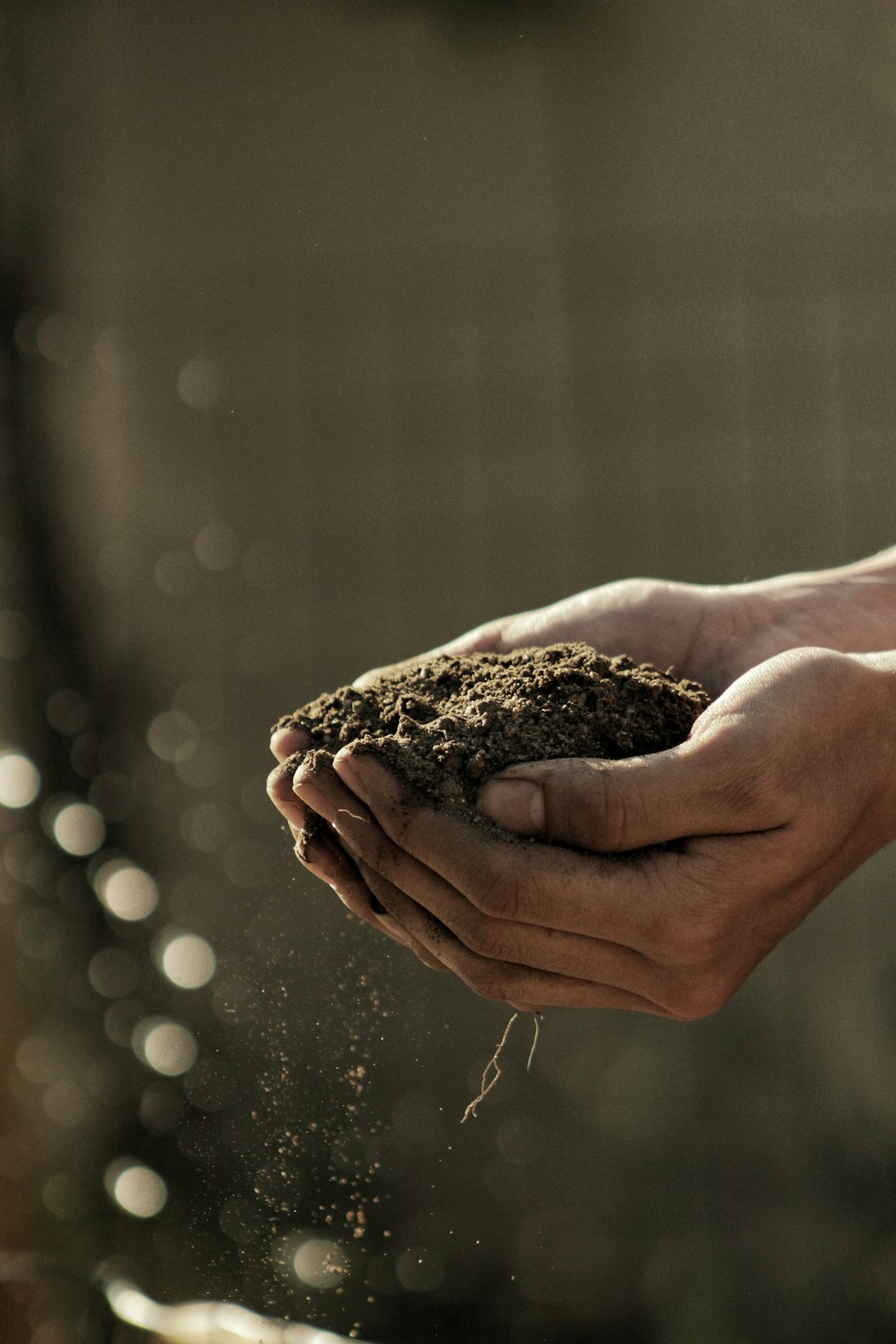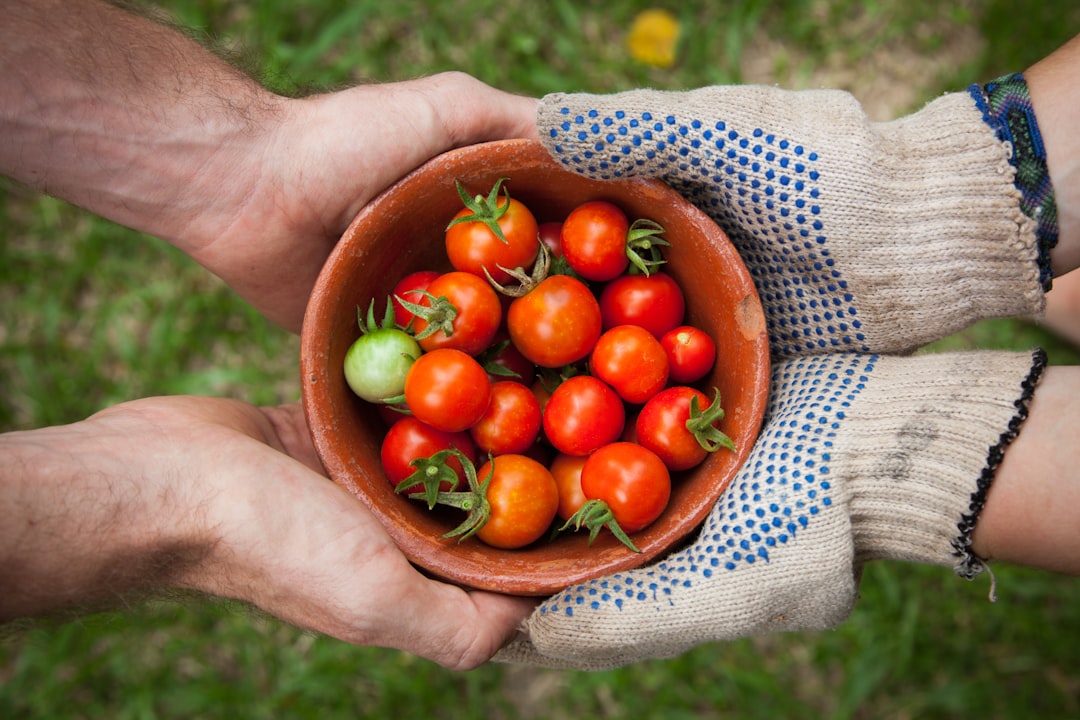This is the sixth piece in my Myth’s Upholding Capitalism series where I try to help us unlearn a few things, and also reorient ourselves in the direction of building something better. This essay very much stands alone, but I hope you find the others helpful as well if you have the time. Thank you so much for reading, and hope you like it! - Josh

This past week footage from a Starbucks worker went viral, getting millions of views across multiple platforms. The short clip, just ten seconds or so, shows him filling up multiple shopping carts of food at the end of a shift. His store is located in a Target, and the pounds of food ultimately fill three shopping carts. All of it is to be thrown out. Enough food to help feed many people, just discarded at the end of a day, to eventually be dumped in a landfill.
We’ve been taught to believe that there isn’t enough. We’ve been taught that there isn’t enough to go around, that it’s a dog-eat-dog world, and that we need to struggle just to have what we need to survive. But the big secret is that there is enough. There’s enough to go around, and then some. There’s just a handful of people who are deeply invested in the rest of us thinking otherwise, and they happen to be the same people who profit off extracting the value of our labor and time.
The truth is that reality isn’t on the side of scarcity. 119 billion pounds of food is wasted in the United States every year. Sixteen million homes currently sit vacant across the U.S., while 580,000 people are currently without housing. And we throw away so much clothing that there are piles of discarded clothing so massive they can be seen from space. The material items needed to sustain life on Earth are remarkably abundant. We, collectively, have everything we need. It simply doesn’t get to those who need it, so much so that millions die of hunger needlessly, and people freeze to death on the streets outside of unoccupied homes.

But where does this knowledge get us? It can easily lead people to think that the world is unfair, which is true. And it can lead us to think that we deserve so much more, which we do. But I’ve written before about the mythology of fairness and deserving, because while these concepts have immense value in many ways, they can also misdirect us, and alone are insufficient to move us towards a better world. The place to go, once we begin to see that there is actually enough to go around, is to the root of the system that produces so much but distributes it so unequally that some people have four homes while many have nowhere to lay their head. If we believe that the most important metric for the distribution of basic necessities is human need, then capitalism is a very ineffective distributor of these necessities. In fact, the profit-motive itself is what denies people their basic needs in many cases. The requirement that someone be able to pay for healthcare denies more and more people healthcare every day. The requirement that people have to pay for higher education cuts people off from pursuing degrees, and saddles millions with massive debt. The requirement that people pay for shelter has put hundreds of thousands out on the streets. The refusal to establish a system that universally provides for these needs with no regard for profit denies billions their basic necessities.
This is not to say under capitalism people don’t produce goods, we do. But the wealth generated from this production is hoarded by the owning class, while the workers whose labor powers the farms and factories and tech innovation don’t receive their share of the wealth they have created, and at this late stage in capitalism’s trajectory the rich are relying more and more on extractive financial mechanisms to capture an ever greater share of global wealth, while ignoring the ramifications this has not only on the rest of the population, but on the entire economic system as well. In fact the lead story in the New York Times just days ago was about the growing consensus even among mainstream business and economic leaders that neoliberal capitalism is failing on a global scale. One of the reasons for that failure is that in a system which relies on extracting more and more from those who don’t have much to being with, in the form of predatory loans and late fees and raising the costs of basic needs, the majority of the population has less and less money to circulate. These top-heavy economies are simply not sustainable in the long-term.
One of the many ways the current economic arrangement is increasingly hard to sustain is that those who extract wealth from the economy often choose to hide it away. Whereas people who have less to begin with recirculate their resources through spending and giving it away at higher rates, the super-rich increasingly store their wealth off-shore, a direct contradiction of the deceptive ideas behind “trickle-down” economics. So while there is in fact wealth and resources in abundance, much of that massive abundance is withdraw from the economy in the form of trillions of dollars sitting idle in offshore accounts, as detailed in the Panama papers and elsewhere. So the real question is not really about the reality or scope of scarcity, but about distribution. The question is how we move beyond a system that fails to adequately distribute that which exists in fantastic abundance, and towards a system that cares for everyone’s basic needs, and even allows each of us to thrive.
All of us have already seen what’s possible when we give to others and care for others outside the reach of profit motive. At the beginning of the pandemic there was an explosion of mutual aid, because there was an explosion of need. Many of us participated in these efforts, and many more witnessed them both in person and online. There was also a dramatic ramp-up in government aid to millions. Of course there were the famous direct checks, which were rather minimal, but there was also a major increase in unemployment, where over 10 million people who were suddenly out of work were able to live off collecting unemployment for many months. This relief has been ended, but we all bore witness for a considerable period of time to how we do collectively have the ability to care for one another in multiple ways, and how the resources we are often told aren’t there are in fact very much there.
We also see dozens of other examples of what can be provided to people without the yolk and limitation of profit motive. We see churches giving away free food, we see non-profits providing school supplies, clothing, and even housing. We see government entities distributing aid on a massive scale. Now there are problems with the non-profit industrial complex and many governmental programs as well, but that’s for a different piece. For today we can see and appreciate that the abundance we’re fortunate enough to be surrounded by here on Earth can be redistributed to those who need it most, if we’re willing to build systems that do this on the necessary scales.
That is not to say building new systems is easy. It’s not. But fortunately, there are millions of people already engaged in building up alternatives to capitalism from every angle in every part of the world. I am reminded of the Diane di Prima quote:
“No one way work, it will take all of us
shoving at the thing from all sides
to bring it down”
At this current moment, although I do believe in the tremendous value of bringing down the many existing systems of oppression, I am more invested in the work of creating, building up systems that operate independent of profit from every side. That means more mutual aid, more community gardens and hubs of food sovereignty, more worker co-ops where people are working towards socialism, forming networks to power the solidarity economy, and more. Early in this piece I said that we’ve been taught to look out for ourselves, and to some degree we do need to struggle to take care ourselves and secure what we need to survive in this world. What I didn’t say is that the best way to really look out for ourselves is to look out for one another.

What I mean by that is the narrative of a lone ranger, armed to the teeth protecting himself and his family, is actually the least effective way to look out for ourselves, and for one another, that I can possibly think of. Since the dawn of human history we have cared for each other. We are group creatures, social animals, and I believe that matters on a deep level. I believe that almost all of us need friendship and camaraderie and people around us to be happy and healthy. But all of us, regardless of our social disposition, need other people. Many people grew the wheat that went into the bagel that made up my breakfast today, someone drove the train I took today, many people work to make every single thing we do possible. On a more profound level, we can choose to embrace that interconnectedness rather than pretend it doesn’t exist. And in that embrace we can make the things we need more available to one another, rather than restricting them and making them inaccessible through manufactured scarcity.
So let’s build up interdependence and interconnectedness from every side. Let’s build projects and systems of care. Let’s talk to our neighbors, our coworkers, and strengthen the relationships that can sustain us. Let’s organize and learn together and teach one another that scarcity is, by and large, a myth used to keep us scrambling and competing with one another rather than constructing a beautiful society together where everyone has what they need. I hope to keep doing this work, and I hope you’ll keep doing it with me.


The timing of this felt so affirming for me! Thank you for writing and sharing this ♥️
It almost feels so simple as to be inadequate, but the little things we do to build relationships with and look out for our friends and neighbors are the seeds of a better way of living. I know a lot of people get worried when someone talks about redistributing wealth, so I always like to point out that our economy has been designed by the wealthy to redistribute wealth upward to the 1%. Robert Reich explains it very well with the example of corporations being able to absolve themselves of debt through bankruptcy (without affecting the owner's personal assets), but individuals not being able to avoid paying student loans by declaring bankruptcy. These are rules designed with a specific purpose to benefit the wealthy and all we're saying is we should change them to benefit those in need, not those who have.